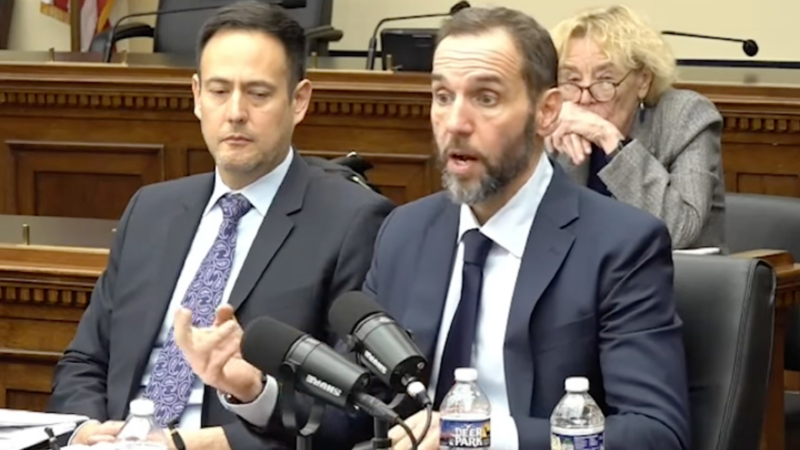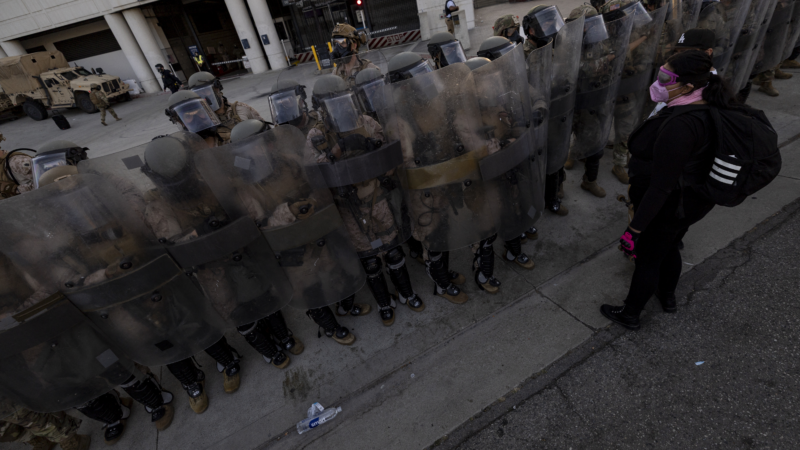Destroying endangered species’ habitat wouldn’t count as ‘harm’ under proposed Trump rule
The Trump administration is proposing to significantly limit the Endangered Species Act’s power to preserve crucial habitats by changing the definition of one word: harm.
On Wednesday, the administration proposed a rule change that would essentially prohibit only actions that directly hurt or kill actual animals, not the habitats they rely on. If finalized, the change could make it easier to log, mine and build on lands that endangered species need to thrive.
“Habitat loss is the biggest single cause of extinction and endangered species — it makes sense to address it,” said Brett Hartl, government affairs director at the Center for Biological Diversity. He called efforts to deny that cause “callous and reckless.”
“Any conservation gains species were making will be reversed — we’re going to see losses again,” he said.
Under the Endangered Species Act, it’s illegal to “take” an endangered species. By law, “take” is defined to mean actions that harass, harm, or kill species. For decades, federal agencies have interpreted “harm” broadly, to include actions that modify or degrade habitats in ways that impair endangered species’ ability to feed, breed or find shelter.
That interpretation has been a crucial part of how the Endangered Species Act has protected over 1,700 species since its passage in 1973, said Hartl. It’s helped preserve spawning grounds for Atlantic Sturgeon, allowing them to mate and sustain the population. It’s protected old-growth forests in the Pacific Northwest that house northern spotted owls and red-cockaded woodpecker, saving them from extinction.
In the 1990s, timber companies that wanted to harvest those old-growth forests challenged the government’s broad interpretation of harm. The Supreme Court ultimately upheld that interpretation in a 6-3 decision.
In a dissenting opinion, Justice Antonin Scalia disagreed with that interpretation. He argued that in the context of wild animals, “take” should be interpreted more literally, as an affirmative act directed against a particular animal, not an act that indirectly causes injury to a population.
The Trump administration cites Scalia’s argument in its proposal, saying it’s “undertaking this change to adhere to the single, best meaning of the ESA.”
Conservation experts argue it makes no sense to adopt such a narrow definition of harm. “If you’re a prairie chicken in the southwest, and there’s an oil and gas developer and they want to destroy your prime breeding display grounds, the bird can’t mate,” said Hartl.
“You’re not actually harming any of them directly,” he said, but the end result is essentially the same.
The public has 30 days to comment on the proposed rule change. The move will also likely be challenged in court.
Zohran Mamdani sworn in as New York City mayor, capping historic rise
Mayor Zohran Mamdani took the oath of office in New York City after midnight Thursday. The city's first Muslim mayor, a member of the Democratic Socialists of America, has promised to focus on affordability and fairness.
Rising from the ashes, a symbol of hope at the Rose Parade
Survivors of the Eaton and Palisades Fires find healing and community working on a Rose Parade float to honor the lives and communities lost in last year's wildfires.
The history behind the NYC subway station chosen for Mamdani’s swearing-in
The city shut down the station in 1945 on New Year's Eve. Eighty years later, it's a symbolic venue choice for the incoming mayor's private swearing-in ceremony.
U.S. military strikes 5 more alleged drug boats, killing 8
The U.S. military says it struck five alleged drug-smuggling boats over two days. The attacks killed eight people, while others jumped overboard and may have survived. U.S. Southern Command did not reveal where the attacks occurred.
Capitol riot ‘does not happen’ without Trump, Jack Smith told Congress
Former special counsel Jack Smith also described President Trump as the "most culpable and most responsible person" in the criminal conspiracy to overturn the 2020 election results, according to a transcript of Smith's closed-door interview with the House Judiciary Committee.
Trump will drop push for National Guard deployments in Chicago, LA and Portland, Ore.
Courts blocked troops from deploying in Chicago and Portland, Ore., and the Los Angeles deployment effectively ended after a judge blocked it earlier this month.







